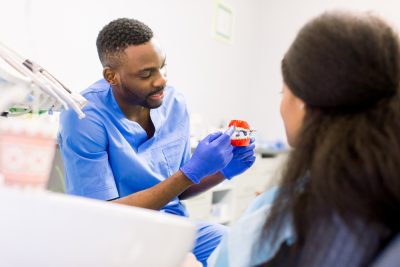Breast cancer, often associated with older women, can also strike those in their younger years. However, the journey of young women dealing with this diagnosis brings with it a distinct set of challenges and considerations, making their experience markedly different from those of their older counterparts. Understanding the hurdles faced by younger women with breast cancer is critical for offering the necessary support, proper treatment and encouragement to cope with both the physical and emotional aspects of this life-changing diagnosis.
In this article, we will explore the unique challenges faced by young women who receive a breast cancer diagnosis, the emotional and psychological impact of the disease, the practical difficulties, and the considerations in their treatment and survivorship.
The unexpected nature of a young diagnosis
A diagnosis of breast cancer in younger women is often unexpected, as it’s typically perceived as a disease affecting older individuals. This leads to a major obstacle — delayed detection. Young women are often not prioritized for regular mammograms or other screening measures, making it harder to catch the disease early. Symptoms might be overlooked, misdiagnosed or attributed to less severe conditions, leading to a late diagnosis when the cancer is more advanced and aggressive.
The lack of early detection tools tailored specifically for younger women further complicates matters. For these women, the discovery of breast cancer is often abrupt and shocking, disrupting not only their sense of health but their vision of the future. Unlike older women, who may be more attuned to the possibility of cancer, younger women are less prepared mentally and emotionally to grapple with such a diagnosis.
Psychological and emotional impact
For young women, breast cancer is not just a health crisis; it’s a disruption to their identity and plans for the future. Dealing with a cancer diagnosis while navigating careers, relationships and even motherhood adds layers of stress and uncertainty. Many young women grapple with body image issues, especially when surgery or treatments such as chemotherapy and radiation are required. The loss of a breast or changes in hair, skin and weight can deeply affect self-esteem and confidence.
Moreover, young women are still in the stage of building their lives. Cancer can force them to confront a reality that doesn’t align with their aspirations. Feelings of isolation are common as they may feel disconnected from their peers, who are at vastly different life stages, not dealing with life-threatening illnesses. Depression, anxiety and feelings of being overwhelmed often accompany the physical battle against cancer, emphasizing the need for mental health support alongside medical treatment.
Fertility and family planning concerns
One of the most pressing considerations for young women with breast cancer is how the disease and its treatment will affect their fertility. Chemotherapy, radiation and hormonal treatments, all of which are integral to breast cancer care, can significantly impact ovarian function and reduce the ability to conceive. This reality makes decisions about treatment far more complex for younger women who may not yet have had children or who wish to have more.
The urgency of cancer treatment often means that fertility preservation procedures, such as egg or embryo freezing, need to be decided upon quickly. The emotional burden of having to confront potential infertility and make rapid, life-altering decisions about their future family planning while simultaneously processing a cancer diagnosis can be overwhelming. Young women need to be informed about their options and given the resources to make informed decisions that align with their life goals.
Unique treatment considerations
Breast cancer in younger women is often more aggressive than in older women, requiring a tailored approach to treatment. It’s common for younger patients to be diagnosed with more advanced stages of cancer or to have types that are more difficult to treat, such as triple-negative breast cancer. This necessitates an approach that is not only effective but also balances the potential long-term effects of treatment.
Due to their age and longer life expectancy, younger women need to consider the impact of their treatments on their future health. The risks of heart disease, bone loss and secondary cancers are greater when exposed to certain treatments over an extended period. Additionally, the psychological impact of potential early menopause, which can result from cancer therapies, adds to the complexity of treatment choices and survivorship.
The treatment journey for younger women must be multidisciplinary, involving oncologists, fertility specialists, mental health professionals and surgeons to ensure that the care they receive addresses both the immediate need to eradicate cancer and the long-term quality of life concerns.
Support systems and survivorship challenges
The journey of breast cancer doesn’t end with the completion of treatment; survivorship brings its own set of challenges. Young survivors often struggle with transitioning back to their “normal” lives, which might no longer resemble what they were before diagnosis. The “new normal” includes dealing with the physical after-effects of treatment, such as fatigue, pain and cognitive impairments, known as “chemo brain.” It also includes managing the emotional scars left by the cancer experience, like fear of recurrence and lingering anxiety about health and the future.
Support systems are critical, and young women often require age-appropriate resources that address their specific needs. Traditional support groups that include older survivors may not resonate with younger women who are dealing with different life challenges. Peer support, counseling and dedicated communities can provide the necessary encouragement and shared understanding to help young survivors navigate their unique paths.
Financial considerations and career impact
Cancer treatments are expensive, and for young women, who may be in the early stages of their careers, this can have a profound financial impact. Many face difficulties balancing work and treatment, and the need for extended leave or reduced hours can lead to financial strain.
Moreover, young women often worry about how a cancer diagnosis will affect their career trajectory. Will they be seen as less capable or committed? Will they be able to keep up with their peers in terms of career advancement? For those who are entrepreneurs or self-employed, the financial hit can be even greater, as time away from their business can significantly impact income and growth.
Having open conversations with employers, understanding workplace rights and exploring financial assistance programs can help young women manage these challenges as they navigate their treatment and career simultaneously.
The importance of early detection and education
Given the aggressive nature of breast cancer in young women and the unique challenges they face, early detection and education are paramount. Young women should be encouraged to be proactive about their breast health, even if they are not in the traditional age bracket for screening. Understanding the signs and symptoms of breast cancer, knowing their family history and being empowered to advocate for themselves in the face of unexplained symptoms are all crucial steps in catching the disease early.
Education also extends to health care professionals, who need to recognize that breast cancer in young women may present differently and require a different approach to screening and diagnosis. By improving awareness and fostering open discussions, there is a greater chance of catching breast cancer in its early stages and providing young women with better outcomes and a smoother road to survivorship.
Building a support network and moving forward
For young women facing breast cancer, having a strong support network can make a world of difference. Friends, family, medical professionals and peer support groups can offer not only emotional and practical support but also the courage to face the journey ahead. Embracing one’s support network can provide the strength to endure treatment, make informed decisions and rebuild life after cancer.
While breast cancer is a life-altering diagnosis, it does not define the lives of young women who face it. With the right medical care, emotional support and access to resources, many young women can and do go on to live full, vibrant lives, embracing the challenges and experiences that shaped their journey.
By exploring the unique challenges of breast cancer in young women, this article aims to shed light on the complexities of the disease in this population. Early detection, appropriate support and tailored treatment options are all key components to ensure that young women with breast cancer receive the care and guidance they need to navigate this life-changing diagnosis effectively.
This story was created using AI technology.











